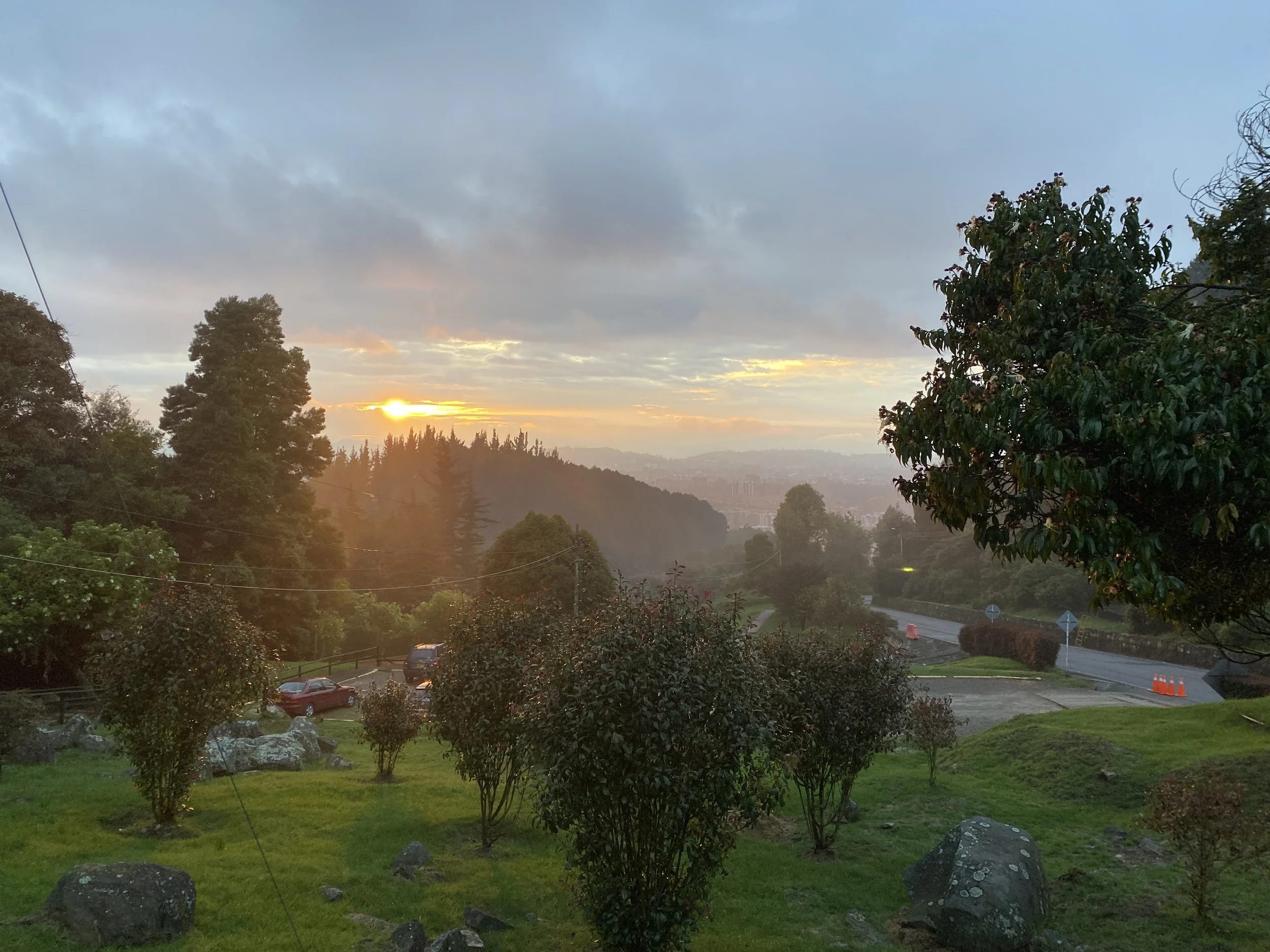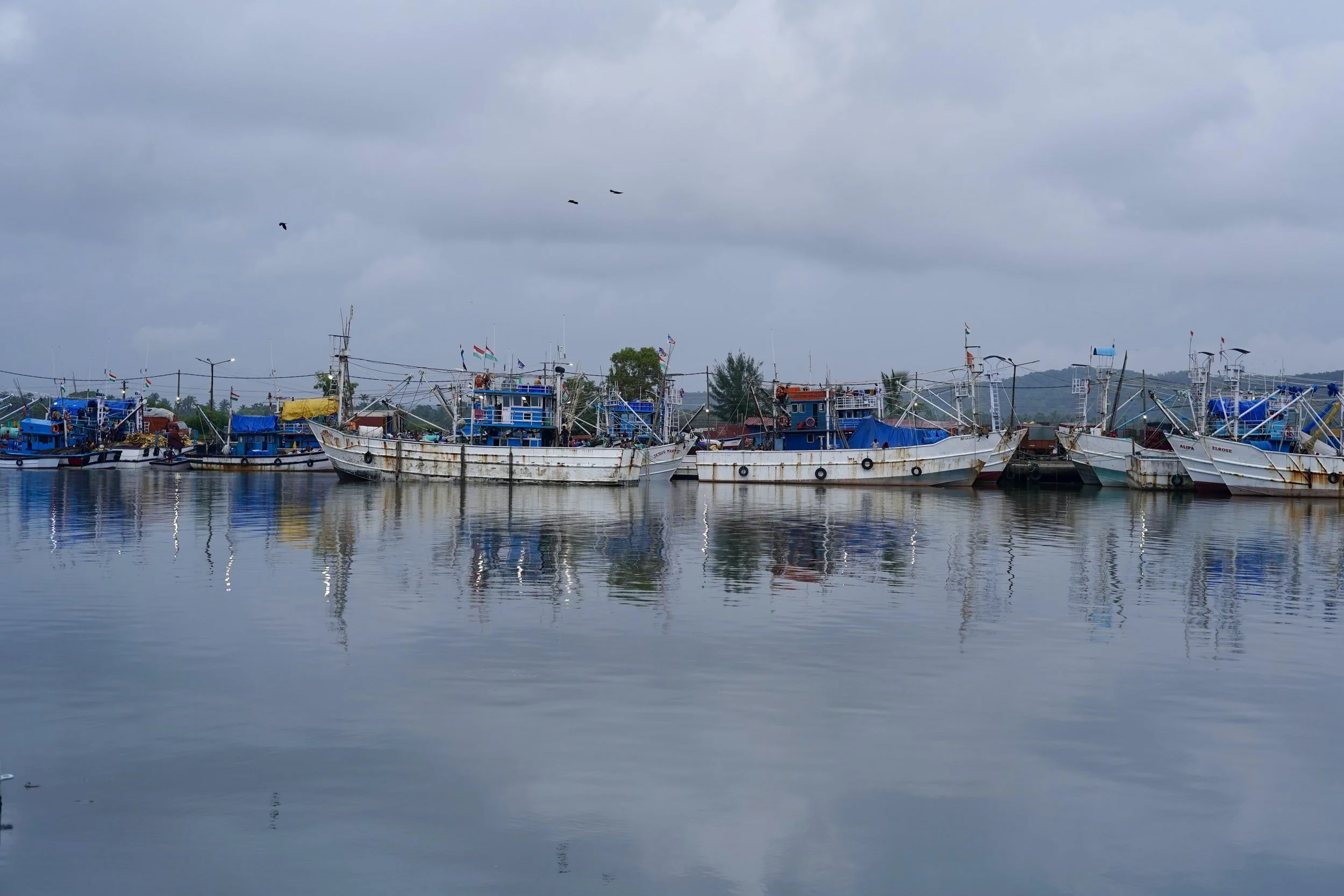From June 26th to June 28th, 2022, CAL and our partners at the African Coalition for Corporate Accountability, Dejusticia, and the Comisión Intereclesial de Justicia y Paz held an in-person gathering of the Corporate Liability and Sustainable Peace (CLASP) Lab, a collection of nearly 40 leaders and advocates from 25 countries, in Bogotá, Colombia. The convening was the culmination of a year-long virtual “social lab” process in which we led the group through an adaptation of our legal design process around the question of corporate impunity for human rights and environmental abuses committed during conflict–and how to break with that impunity.
FIFTY YEARS OF CORPORATE EXPLOITATION: ENVIRONMENTAL, LABOR, & HUMAN RIGHTS ABUSES BY US MINING GIANT FREEPORT (PART II)
In our first post of this three-part series, we outlined Papua’s violent colonial history, the ongoing Free West Papua movement, and the inextricable connection between this history, present-day struggles, and Freeport’s operations in the region. In this post, we’ll dive into the specific harm experienced by mine workers, surrounding Indigenous communities, and the unique Papuan ecosystem– and, we’ll describe Freeport’s alleged role in all of it. For over fifty years, Papuans have suffered for the sake of a foreign company’s profits. Freeport’s initial investment, made in the throes of colonialism, is a critical part of this story, and the company’s dominance over Papua’s economy and institutions continues today, making accountability very difficult to achieve.
Recent Corporate Accountability Legislation, Part II: The Fashioning Accountability and Building Real Institutional Change (FABRIC) Act
The Fashioning Accountability and Building Real Institutional Change Act (FABRIC Act) has been described as world-leading and labeled a “landmark” bill, the “first-ever” of its kind, and transformative and groundbreaking. We’ve heard this type of rhetoric before about other federal and state legislative proposals purporting to revolutionize protections for supply chain workers — and we’ve been quick to counter that those bills, while disguised as human rights legislation, failed to deliver systemic change, did not provide for victim agency, and ultimately perpetuated the status quo of corporate impunity.
Recent Corporate Accountability Legislation, Part I: The European Commission’s Directive on Corporate Sustainability Due Diligence
It is far too easy for multinational corporations to evade liability for human rights and environmental harms, especially when the companies – which are often based in the European Union (EU) or in the United States (US) – commit those harms in the Global South. We have seen this again and again, from Shell’s extensive pollution in the Niger Delta to the chocolate industries’ reliance on forced labor and hazardous child labor. To address this crisis of impunity, we must pass stronger legislation – legislation that makes companies accountable for their entire supply chains – across the Global North.
The Uyghur Forced Labor Prevention Act: CBP Must Enforce to the Fullest Possible Extent
Today, June 21, 2022, the Uyghur Forced Labor Prevention Act (UFLPA) went into effect. This legislation passed with overwhelming bi-partisan support, a rarity in this current political climate. The UFLPA establishes a rebuttable presumption that no goods produced wholly or in part in the Xinjiang Uyghur Autonomous Region (XUAR) may be imported into the US. Importers may rebut the presumption by presenting clear and convincing evidence that the goods were not produced using forced labor – a high bar.
21 años de impunidad empresarial y la resistencia del sindicato colombiano Sintramienergética
El mes pasado, la Comisión Colombiana de Juristas (CCJ) en alianza con PAX Colombia y el Sindicato Nacional de Trabajadores de la Industria Minera, Petroquímica, Agrocombustibles y Energética (Sintramienergética) presentó el informe titulado “La explotación minera de Drummond Ltda.: epicentro de persecución, asesinatos y violaciones de libertades sindicales” a la Jurisdicción Especial para la Paz (JEP). El informe se centra en la violencia sufrida por el sindicato Sintramienergética, incluyendo el exterminio de sus líderes sindicales en el 2001. Este blog es una actualización del blog de abril de 2021. Esta entrada proporciona información adicional sobre los asesinatos de los líderes sindicales, a la vez que describe su trabajo, el contexto en el que fueron asesinados y la lucha actual contra la impunidad por sus muertes.
21 Years of Corporate Impunity - The Systematic Attempt to Eliminate a Union’s Leadership in Colombia
Last month, the Comisión Colombiana de Juristas (CCJ) in alliance with PAX Colombia and the Sindicato Nacional de Trabajadores de la Industria Minera, Petroquímicas, Agrocombustibles y Energética (Sintramienergética) submitted a report entitled Drummond Ltda. Coal Mining: epicenter of persecutions, assassinations and violations to freedom of association to the Special Jurisdiction for Peace (JEP, for its Spanish acronym). The report focuses on the violence suffered by the union Sintramienergetica, including the extermination of its leadership in 2001. This blog post is an update to CAL’s blog from April 2021. This post provides additional information on the union leaders’ assassinations while describing their organizing work, the context in which they were killed, and the ongoing fight against impunity for their deaths.
CAL provee evidencia de la complicidad empresarial en el conflicto armado a la Jurisdicción Especial para la Paz en Colombia
Corporate Accountability Lab presentó recientemente a la Jurisdicción Especial para la Paz (JEP) la primera parte de un informe sobre el papel de las empresas multinacionales en el conflicto armado. El informe sirve para apoyar las investigaciones del tribunal de justicia transicional sobre los crímenes cometidos en regiones como el Cesar y el Magdalena Medio a través de asociaciones entre agentes del Estado, paramilitares y "terceros" ("terceros civiles" o "no combatientes"). La última de estas categorías es muy amplia y puede incluir a las empresas.
CAL Provides Evidence of Corporate Complicity in Armed Conflict to Colombian Peace Tribunal
Corporate Accountability Lab recently submitted the first half of a report about the role of multinational companies in the armed conflict to the Special Jurisdiction for Peace (JEP, for its acronym in Spanish). The report serves to support the transitional justice tribunal’s investigations into crimes committed in regions including Cesar and Magdalena Medio through associations between state agents, paramilitaries, and “terceros” (“third party civilians” or “non combatants”). The last of these categories is very broad and can include corporations. The role of all actors–not just combatants–must be reckoned with to achieve justice and sustainable peace in Colombia and beyond.
CAL joins amicus brief supporting victim-survivors of human trafficking in Thai factories serving U.S. seafood market
CAL and 18 other human rights organizations recently filed an amicus brief with the United States Ninth Circuit Court of Appeals in support of the plaintiffs in Keo Ratha, et al. v. Phattana Seafoods, Co. Ltd. et al. (Ratha). The Ratha plaintiffs, Cambodian villagers living in poverty, allege that several US and Thai companies violated US and international law by engaging in a joint venture that relied on trafficked and forced labor of plaintiffs and others to produce shrimp and seafood for export to the US market. The amicus brief, written by Global Labor Justice-International Labor Rights Forum, supports the plaintiffs’ petition for rehearing en banc of a Ninth Circuit decision that would preclude them from seeking redress against the defendants and set dangerous precedent for other victims of trafficking and forced labor seeking justice in US courts.
Organizing against Giants: Workers Assert their Rights at Starbucks, Amazon & Beyond
Since late 2021, worker organizing efforts in the United States have culminated in multiple victories against corporate giants, including the country’s first successful unionizations at Amazon and Starbucks. Even if the broader state of unionization in the US is still bleak, this organization of workers is an important step forward on the road to challenging unsustainable business models designed to profit at the grave expense of workers.
Corporate Accountability Lab reafirma su apoyo a la Comisión Intereclesial de Justicia y Paz y su trabajo en materia de justicia restaurativa y garantías de no repetición
Corporate Accountability Lab (CAL) reafirma su apoyo a la Comisión Intereclesial de Justicia y Paz (CIJP) y su compromiso hacia una paz sostenible en Colombia. En los últimos días, los ataques públicos contra el trabajo de la CIJP han aumentado. La CIJP está siendo falsamente acusada de ofrecer beneficios judiciales a favor de una campaña presidencial. CAL no puede permanecer en silencio ante estos ataques contra uno de nuestros aliados más cercanos en América Latina.
Corporate Accountability Lab reaffirms its support for the Comisión Intereclesial de Justicia y Paz and its work on restorative justice and guarantees of non-repetition
Today, Corporate Accountability Lab (CAL) reaffirms our support for the Comisión Intereclesial de Justicia y Paz (CIJP) and its commitment to sustainable peace in Colombia. In the last few days, public attacks against the work of CIJP have increased. CIJP is being falsely accused of influencing inmates to benefit a presidential campaign. We at CAL cannot remain silent in light of these attacks against one of our closest partners in Latin America.
Major tuna company sued for claiming sustainability while likely relying on forced labor
GLJ-ILRF is suing Bumble Bee under the District of Columbia Consumer Protection Procedures Act (CPPA) on behalf of itself and the general public, in the interest of Bumble Bee consumers in Washington, D.C. GLJ-ILRF, which is represented by Richman Law & Policy, seeks a declaration from the court that Bumble Bee’s practices violate the CPPA and an injunction to prohibit the company from continuing to engage in misleading advertising.
GLJ-ILRF’s claims that Bumble Bee has engaged in false and deceptive marketing are based on the company’s representations about a “fair and safe supply chain,” including that it is “best-in-class” for worker safety standards and “champion[s] sustainable fishing,” despite substantial evidence of forced labor and worker safety violations.
CAL Condemns Russia's War of Aggression & Urges Businesses to Do More—in Ukraine & Elsewhere—for Human Rights
In this post, we examine the swift implementation and shift in the global order that took place since Russia’s invasion, just three weeks ago, on February 24, 2022. We look at how companies have responded and compare the widespread exit from the Russian economy with how companies respond to other human rights violations and humanitarian disasters.
FIFTY YEARS OF CORPORATE EXPLOITATION: THE STORY OF US MINING GIANT FREEPORT & PAPUA’S STOLEN SOVEREIGNTY (PART I)
The Grasberg Copper and Gold Mine, the largest in the world of its kind, is carved out of a mountaintop 14,000 feet above sea-level in the highlands of Papua, Indonesia. In fact, the open-pit mine is so large that the crater can be seen by astronauts in the International Space Station. It is estimated to contain $108 billion worth of minerals, but before the mountaintop was carved up for its wealth, it was the sacred mother of the Amungme indigenous community. They and many other indigenous communities have since been driven from their home by the American mining company and operator of the Grasberg mine, Freeport McMoRan.
Environmental Litigation and Beyond: Lessons for Challenging the Status Quo
Environmental litigation in national courts is increasingly pointing the way toward novel approaches that can be useful in challenging the status quo on behalf of people and the planet. In formulating strategy, activists should consider the factors driving the litigation outcomes, the characteristics of the emerging legal landscape, and the contours of appropriate government regulation and corporate compliance frameworks, taking into account these developments. Although in this blog we focus on lessons from lawsuits in Australia, Germany, the Netherlands, and the United States, lawsuits in the Global South are also instructive strategically.
The Fashion Sustainability & Social Accountability Act: Nothing More than a Consumer Awareness Bill
In January 2022, the New York Assembly unveiled the Fashion Sustainability and Social Accountability Act (FSSAA), a law that purports to change the fashion industry and its role in perpetuating human rights and environmental harm. Such a law is certainly needed; the fashion industry is a massive polluter, accounting for between 2-8 percent of global emissions. The industry employs 75 million people, including workers in all parts of the supply chain and in countries throughout the world – many of whom are vulnerable and exploited.
But is this law really as powerful and “historic” as the New York Times claimed? No. After careful analysis, we believe that while we would rather see it pass than fail, there are some major flaws that weaken it. This law will not be a game-changer; at best, it will provide a little bit more transparency in supply chains, a positive but small step in the right direction. At worst, it will stop other pushes for legislation that would actually provide remedy to workers and incentivize changes in supply chains beyond disclosure.
SFC v. Vizio: Third-Party Beneficiaries in Open Source Software Licenses?
Most of us do not care how software runs, whether that software is on our computers, our televisions, or our toasters - we just need it to work. However, part of the reason open source software has expanded is because it's in an ecosystem where developers and maintainers are trying to look at the code, use it, modify it, improve it, and even redistribute it. In fact, this concept is so integral to open source software, that many open source software licenses demand that any projects derived from licensed work also be open source, and allow others to use it, copy it, modify it, and distribute it. So, if a company does not adhere to the terms of the license, can you, as a consumer who should have the ability to view the source code of your smart appliances, sue them for breach of contract? If you can, what does that mean for open source software licenses, including ethical open source software licenses, going forward?
Corporate America's Empty Promise to Defend Democracy
One year ago today, on January 6, 2021, after thousands of deceived Americans violently overtook the U.S. Capitol and delayed a critical procedural step in the peaceful transition of power, waves of corporations issued statements condemning the violence and promising to “reevaluate” their political alliances by ending donations to leaders of the insurrection. Many of these public pledges were then broken in less than 3 months.
























